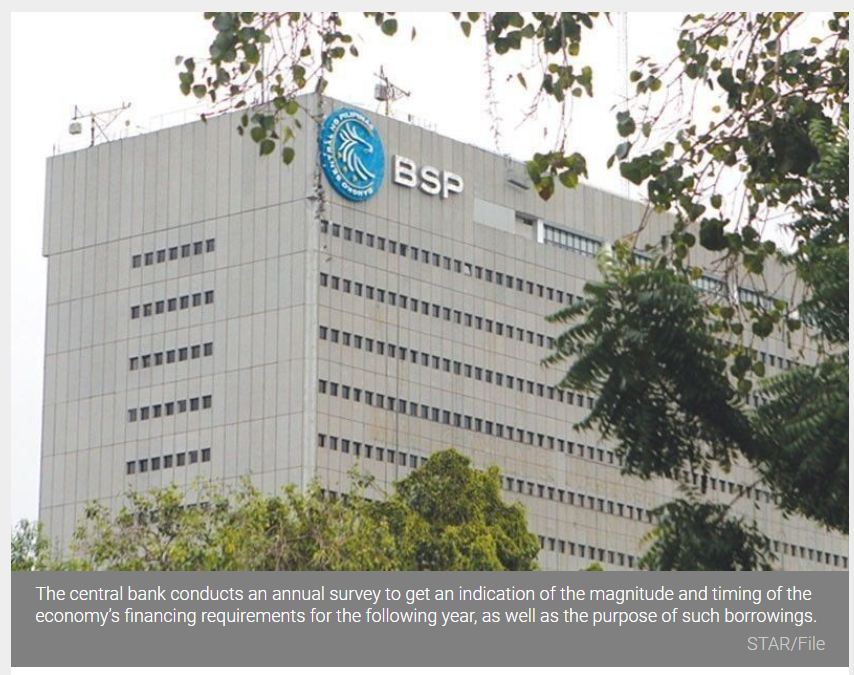Philippines: BSP sets deadline for 2022 foreign borrowings plan
MANILA, Philippines — The Bangko Sentral ng Pilipinas (BSP) is reminding government and private entities to submit their planned foreign borrowings for next year not later than Sept. 30.
The central bank conducts an annual survey to get an indication of the magnitude and timing of the economy’s financing requirements for the following year, as well as the purpose of such borrowings.
This is in line with the BSP’s responsibility to monitor capital flows and analyze their implications on the economy.
In line with the BSP mandate on external debt management and pursuant to Section 22.7 of the Manual of Regulations on Foreign Exchange Transactions, the regulator requires entities, both government and private, to submit their foreign borrowing plans for next year not later than Sept. 30 to the central bank’s International Operations Department.
“All public and private resident entities, intending to obtain medium- and long-term foreign loans from non-residents, including offshore issuances of debt instruments and issue onshore debt instruments that require settlement in foreign currency, are required to submit their foreign borrowings plan for 2022 not later than Sept. 30,” the BSP said.
The requirement covers entities that intend to maintain medium and long-term foreign loans from offshore sources such as banks, parent companies, affiliates or shareholders, including offshore issuances of debt instruments.
Likewise, public and private entities planning to issue onshore debt instruments that require settlement in foreign currency are also covered.
Capital flows affect the foreign exchange market. The peso is one of the weakest currencies as the Philippines continues to struggle to contain the COVID-19 outbreak and the strong demand for the dollar on improving global trade.
The local currency has lost close to five percent after depreciating further to 50.40 to $1 last Friday from the end 2020 level of 48.04 to $1.
The national government borrows heavily from foreign and domestic creditors to finance the country’s budget deficit as it spends more than what it actually earns. The country’s budget shortfall ballooned as the pandemic-induced recession pulled down revenue collections, while spending soared to finance COVID-19 response measures.
Preliminary data from the Bureau of the Treasury showed the national government’s outstanding debt jumped by 23 percent to hit a new high of P11.17 trillion as of end-June from P9.05 trillion in the same period last year due to an increase in foreign borrowings to bankroll the battle versus the deadly virus outbreak.
Borrowings from domestic creditors amounted to P7.94 trillion, accounting for 71 percent for the total, while borrowings from foreign sources reached P3.23 trillion for a 29 percent share.
After increasing by 18 percent to $98.49 billion last year, the BSP said the country’s external debt slipped by 1.5 percent to $97 billion in the first quarter as the government paid more foreign obligations.
Year-on-year, the country’s external debt stock went up by 19.2 percent from $81.42 billion in end-March last year as the government borrowed more to bankroll its COVID-19 response measures.
The national government accounted for 89.4 percent or $50.8 billion of the total public sector debt, while government-owned and controlled corporations, government financial institutions and the BSP cornered the remaining 10.6 percent or $5.9 billion.
On the other hand, the external debt of private companies amounted to $40.3 billion for a share of 41.5 percent from January to March this year.
Source: https://www.philstar.com/business/2021/08/10/2118783/bsp-sets-deadline-2022-foreign-borrowings-plan


 English
English




